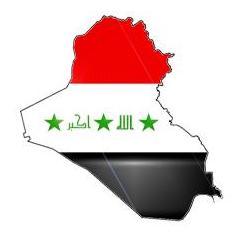Iraqi lawmakers report progress on debate over Kirkuk vote
 Baghdad - Iraqi lawmakers on Wednesday said that they expected to consider an election law in their afternoon session, suggesting a compromise on voting in the northern city of Kikuk might be at hand.
Baghdad - Iraqi lawmakers on Wednesday said that they expected to consider an election law in their afternoon session, suggesting a compromise on voting in the northern city of Kikuk might be at hand.
Iyad al-Samarrai, the speaker of the Iraqi parliament, on Wednesday morning met with representatives of the various parliamentary blocs in an effort to strike a compromise on the issue, which in recent weeks has repeatedly forestalled a vote on a law to cover voting in elections now scheduled for January 16.
Kurdish lawmakers on Tuesday said they would accept a compromise that would grant Kirkuk a "special status" in January's elections, a retreat from the Kurds' previous insistence that voting in the city and the surrounding al-Tamim province must take place in concert with the rest of the country, using the most recent voter registration rolls.
"I expect to reach an agreement on Kirkuk within the coming hours," Iraqi Kurdish lawmaker Rashid Azzawi told Baghdad's Aswat al-Iraq news agency Tuesday night.
"Arabs, Turkmen and Kurds agreed to give Kirkuk a special status," he said.
Massoud Barzani, president of northern Iraq's semi-autonomous Kurdish region, had previously said that the Kurds will not accept any solution that gives Kirkuk "a special status" in the 2010 polls. Kirkuk was left out of previous elections after lawmakers failed to come to a formula for counting the region's votes.
Many Iraqi Kurds hope to make Kirkuk, and its nearby oil fields, the capital of a future independent state, calling it their "Jerusalem." Arab and Turkmen politicians view the city and surrounding al-Tamim province as integral parts of Iraq.
Parliamentary deadlock on the issue has thrown into question whether the elections will take place on time. According to the Iraqi constitution, the elections must take place by the end of January. A law must be passed 90 days before voting begins.
Kurdish lawmakers back a UN proposal that would see Kirkuk vote with the rest of the country, using 2009 voter registration rolls that show a marked rise in the number of Kurdish voters. Arab and Turkmen politicians look with suspicion at the rise in Kurdish voters, and want 2004 rolls used instead.
A more recent UN proposal suggested using the most recent voter rolls, but instituting a quota system to make sure that Arabs and Turkmens were represented. This proposal also suggests making the results of the election provisional, subject to an examination of the voter rolls.
Kurds initially rejected that proposal, with the head of the Kurdish parliamentary bloc, calling it "curious backpedaling on the (UN) mission's stance on Iraq."
Iraqi lawmakers have been seeking a consensus solution to the issue for fear that Iraqi President Jalal Talabani, himself an ethnic Kurd, might veto an election law passed over Kurdish objections.
Iraqi Vice President Tariq al-Hashemi, an Arab Sunni Muslim, said he would intervene if one side sought a solution at the expense of all groups in the city. (dpa)